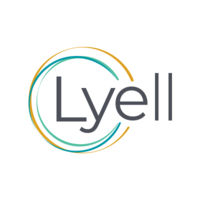ROR1 这个靶点确实让药企们又爱又恨。爱的是它在多种肿瘤中高度特异表达,恨的是其临床开发之路颇为坎坷,尤其是安全性问题,让好几款药物折戟沉沙。尤其是最近尚未合作一年,就被益普生将ROR1 ADC药物STRO-003的权益退回给Sutro Biopharma,给这个领域又交了一盆冷水。
🧪 最新在研ROR1 ADC临床数据
目前已开发的靶向ROR1抗癌疗法,包括单克隆抗体、抗体偶联药物、双特异性抗体以及CAR-T疗法等多种治疗模式。据不完全统计,目前在研靶向ROR1 ADC约二十余种。其中默沙东和LegoChem/基石药业走在前列,我们也将主要介绍下默沙东和基石药业的最新临床数据。
默克MK-2140(Zilovertamab Vedotin):
默沙东的MK-2140即是进展最快的ROR1 ADC候选药物之一(收购自VelosBio,VLS-101),通过蛋白水解可切割的接头mc vc PAB将靶向ROR1的单克隆抗体UC-961偶联到微管靶向剂Monomethyl auristatin E(MMAE)上。UC-961是一种人源化抗体,以高亲和力(Kd=2nM)与ROR1的结合,并通过阻断Wnt5a与ROR1的结合对ROR1阳性肿瘤细胞具有直接的细胞毒性活性。
MK-2140作用机制
药效方面,MK-2140在WaveLINE-007的2期临床试验中表现出显著的疗效。该试验评估了不同剂量的MK-2140联合R-CHP治疗方案在先前未治疗的DLBCL患者中的疗效与安全性。1.75 mg/kg剂量组的完全缓解率(CR)达到了100%,2.0 mg/kg剂量组为93.3%,2.25 mg/kg剂量组为100%,治疗结束时总CR率为97.2%。此外,所有剂量组的客观缓解率(ORR)均达到了100%,12个月的总缓解持续时间(DOR)为93.5%,推荐剂量为1.75 mg/kg。
安全性方面,11%的患者发生了严重治疗相关不良事件(TRAEs),58%的患者经历了3-4级TRAE,其中最常见的包括中性粒细胞减少症、恶心、贫血和腹泻。
基石药业CS5001:
CS5001是另一种抗ROR1 ADC,由LegoChem Biosciences和ABL Bio两家韩国生物制药公司共同开发,基石药业获得了在韩国境外开发和商业化LCB71的专有权。LCB71使用了另一种酶介导的位点特异性偶联技术,这种偶联方法利用法尼基转移酶,该酶天然催化CaaX基序中存在的半胱氨酸残基的异戊二烯基化。
CS5001作用机制
药效方面:CS5001作为单药治疗晚期淋巴瘤的临床数据同样令人鼓舞。在所有剂量水平的总体ORR为48.4%,在DL8(125 μg/kg)剂量组的13例可评估患者中,ORR更是达到了76.9%。对于霍奇金淋巴瘤(HL),从DL5(50 μg/kg)起至DL9(156μg/kg)的10例可评估患者中,ORR达60.0%,其中包括3例CR和3例PR。对于非霍奇金淋巴瘤(NHL),从DL7(100 μg/kg)起至DL9(156μg/kg)的16例可评估患者中,ORR达56.3%。
安全性方面,CS5001展现出良好的耐受性,截至目前在10个剂量组中未报告有剂量限制性毒性(DLT)。
🧬 终止开发的ROR1靶向药物
小编汇总了近年来终止临床的主要 ROR1 靶向药物(包括 ADC 和 CAR-T,单抗等),我们将对表格中的ROR1靶向药物从表达,生物学,治疗窗等角度做一个全面的解读。
ROR1 参与的信号通路(如非经典Wnt通路)在细胞增殖、迁移中起作用,但其在不同肿瘤微环境中的具体功能、内化效率等尚未被完全阐明。这些不确定性给药物设计带来了挑战。
首先,安全性问题(脱靶毒性)这是最核心的挑战。虽然 ROR1 在成人正常组织中表达水平很低或不表达,但这种"低表达"并非"绝对无表达"。研究发现,ROR1 在某些正常组织(如肺部细胞、胃肠道组织、未成熟B淋巴细胞等)仍有少量存在。
ADC药物或CAR-T细胞在攻击肿瘤的同时,可能会误伤这些表达ROR1的正常组织,导致脱靶毒性(on-target, off-tumor toxicity)。LYL797 (CAR-T) 的死亡案例(5级呼吸衰竭)和较高比例的肺炎相关毒性,推测很可能与肺部组织的低水平ROR1表达或细胞因子风暴等有关。
Lyell 公司CEO在谈及终止LYL797 时提到,该药物没有“足够广泛的治疗窗口”。这意味着其有效剂量和产生毒性的剂量之间可能过于接近,难以找到一个既安全又有效的用药区间。
目前临床终止的案例中,CAR-T产品似乎遇到了更大的安全性挑战。这可能与CAR-T疗法本身的特点有关,其在体内强大的扩增能力和强烈的免疫反应可能放大了脱靶效应和细胞因子释放综合征(CRS)的风险。ADC药物由于有抗体、连接子、payload等多个环节可以优化和调控,在安全性控制方面或许有更多的调整空间(例如采用可切割连接子、前药技术等),但同样需谨慎应对。
💡 ROR1还是一个好的ADC靶点吗?
尽管遭遇挫折,但ROR1仍然是一个具有巨大潜力和吸引力的ADC靶点,目前仍有多家公司在探索阶段,如默沙东,基石药业,华东医药等仍在全力开发ROR1 ADC。
ROR1 在多种血液恶性肿瘤(如CLL、MCL、DLBCL)和实体瘤(如三阴性乳腺癌、非小细胞肺癌、卵巢癌)中高表达,而在正常成人组织中表达高度受限。这种“肿瘤特异性”是ADC理想靶点的关键特征,理论上能提供很好的选择性。
虽然部分药物终止,但默沙东的Zilovertamab Vedotin (MK-2140) 在弥漫大B细胞淋巴瘤(DLBCL)的临床研究中展现了令人鼓舞的疗效。其联合方案(R-CHP)在II期研究中一线治疗DLBCL获得了非常高的完全缓解率(1.75mg/kg剂量组达100% CR),这促使默沙东已启动关键性III期临床。这表明合理的药物设计和适宜的适应症选择下,ROR1 ADC有望取得成功。
另外,众多中国药企(如基石药业(CS5001)、石药集团(SYS6005)、华东医药(HDM2005)、正大天晴(TQB2101))正在推进ROR1 ADC的研发。它们中许多采用了更新的技术平台试图优化:
基石药业的CS5001 采用了前药技术和肿瘤微环境选择性激活的连接子-payload设计,旨在降低系统毒性,提高治疗窗口。基石药业也提到CS5001是“目前已知首个在实体瘤和淋巴瘤中均观察到临床疗效的ROR1 ADC”。
💎 总结
ROR1 ADC 的研发之路可谓是 “希望与挑战并存”。尤其是安全性问题,之前的临床终止给整个领域敲响了警钟,其独特的肿瘤表达特异性和积极的初步临床数据(特别是在血液肿瘤中)支撑着其作为重要靶点的地位。技术迭代(如新型连接子、前药、双抗ADC等)有望克服当前障碍。
参考文献:Raso, M.G et al. Heterogeneous Profile of ROR1 Protein Expression across Tumor Types. Cancers 2024, 16, 1874.
总的来说ROR1不算是一个优秀的ADC靶点,表达并不高,上图可以看出多数的肿瘤表达都非常低。基于目前其在血液瘤和实体瘤的初步临床积极数据,ROR1目前仍然可视为一个具有一定潜力-但需要以更精细、更谨慎的策略去攻克的靶点。未来的成败将取决于能否通过技术创新扩大治疗窗口,在有效杀伤肿瘤的同时,确保患者的安全性。






